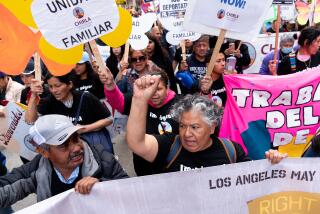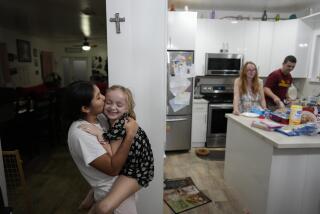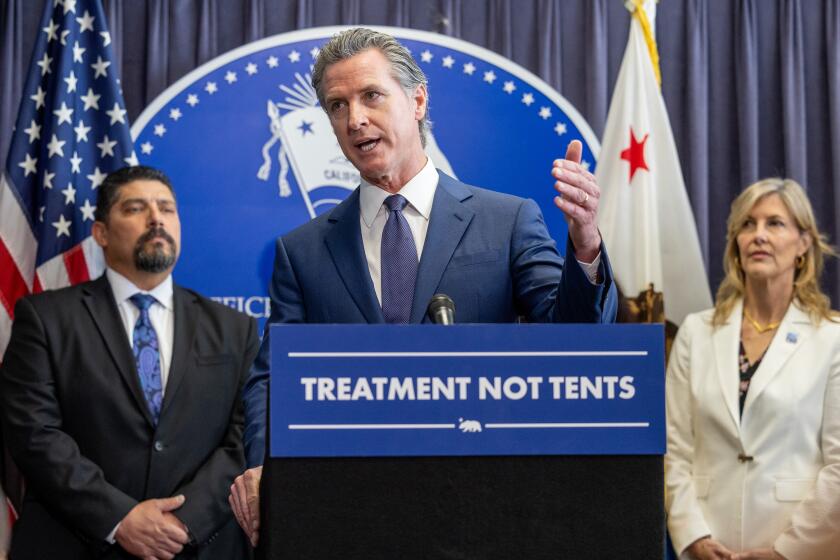After missing DACA, she resented her U.S.-born siblings. Trump ruined her second chance
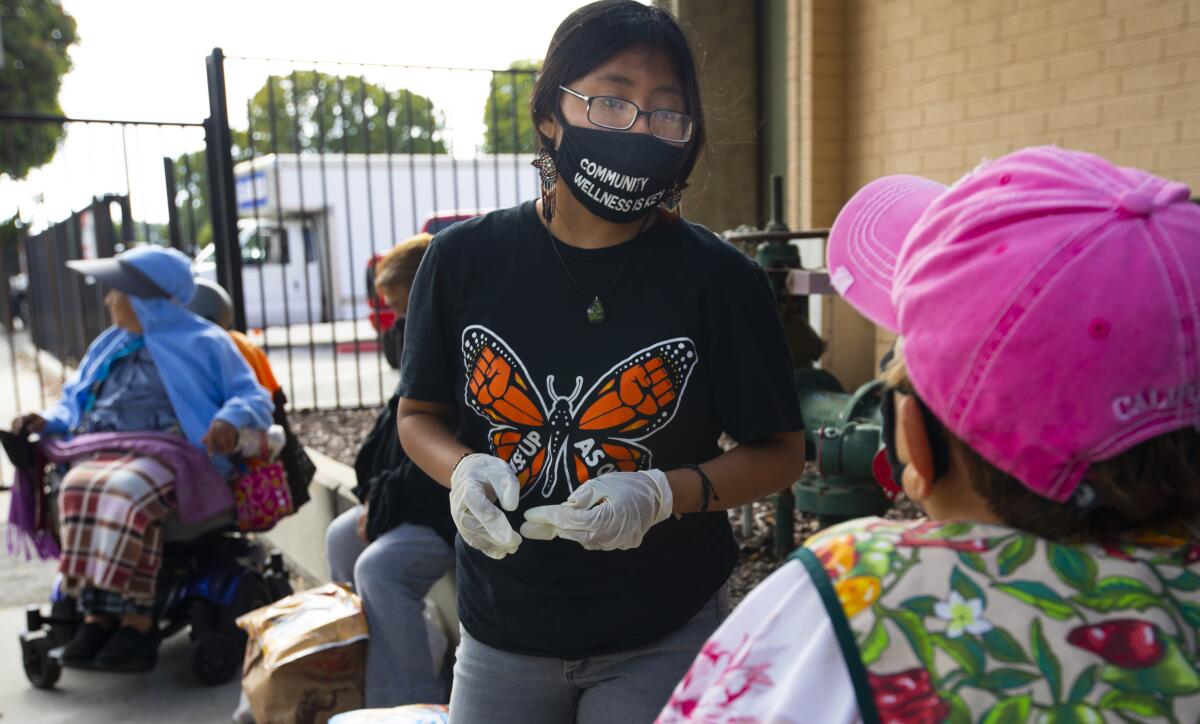
Beatriz Basurto’s father is quick to point out that she — the 19-year-old middle child — is the most responsible of his children.
She’s the one with a well-paying job as a Mixtec interpreter for farmworkers in Oxnard while attending college full time. She’s the one who picks up the tab when they go out for lunch and shoves $20 into his pocket because she figures he could use it more than she can.
But she’s also the one with perhaps the most uncertain future and greatest disadvantage of all the siblings.
Three years ago, Basurto missed her chance to apply for immigration relief under the Deferred Action for Childhood Arrivals program, better known as DACA. The Obama-era program allows immigrants who were brought to the U.S. as children and are currently without legal status the opportunity to live and work legally in the U.S.
Basurto’s youngest brother and sister are U.S.-born citizens. Her older brother and sister, born in Mexico, like her, managed to obtain DACA before Trump began to unwind the program in 2017. Basurto, then 16, was about to apply — and suddenly, DACA was done.
At the time, Basurto confided in her father in their native Mixtec, the Indigenous language spoken in the Mexican states of Oaxaca, Puebla and Guerrero. “It’s too bad I wasn’t born here, Papa.”
“There’s nothing we can do about that,” he replied. “Don’t give up.”
Basurto is among tens of thousands of immigrant youth whom the Trump administration has effectively kept out of DACA, radically changing the trajectory of their lives. Their lack of DACA status has altered relationships, bred resentment and sparked awkward silences between family members who have legal status and those who don’t.
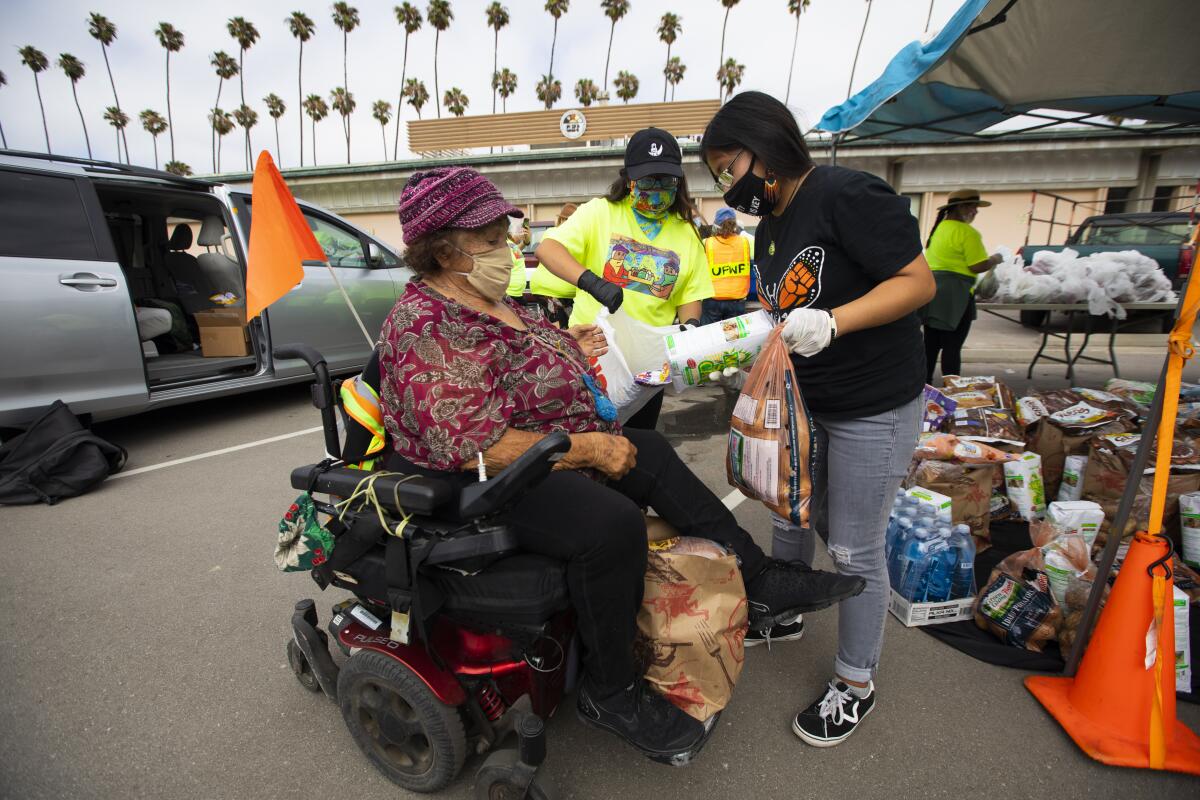
It has led to heightened pressure to excel and guilt among those who were bolstered by the program. It’s even prompted children to question the decisions their parents made long ago to migrate to the U.S.
In June, Basurto thought she had been given a second chance when the Supreme Court ruled that the Trump administration acted in an “arbitrary and capricious” manner in its attempt to shut down DACA. The decision cleared the path to accepting new applications from a previously excluded group of more than 65,000 children now eligible to apply for DACA for the first time, according to the Migration Policy Institute, a nonpartisan D.C.-based immigration think tank.
But Basurto’s hopes were dashed Tuesday when Trump announced he would not accept new DACA applications. The move defies the Supreme Court decision and a federal District Court ruling in Maryland ordering immigration officials to accept new applications, experts and lawmakers say. It probably will face renewed legal challenges in the courts.
As Basurto watches DACA open opportunities for her older siblings and peers, she has seen her own prospects dwindle. At the same time, she has noticed complacency set in among some DACA recipients, while her own hardship bred resilience, motivation and social activism.
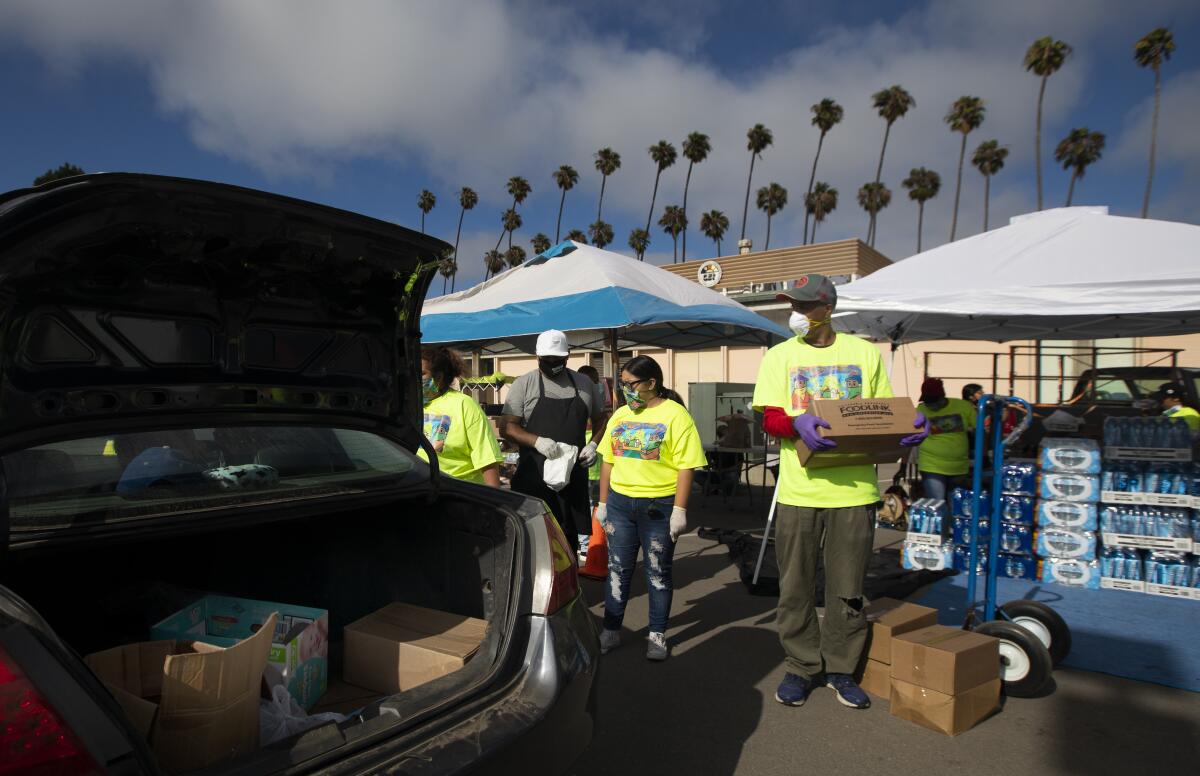
“I have a life outside of DACA,” Basurto said. “DACA does not define who I am.”
Still, she had plans to apply for DACA as soon as she got word that the government would accept new applicants — mostly to give her parents peace of mind.
“You can’t really translate DACA in Mixtec,” she said. “For them, it just means I’m protected and don’t have to return to Mexico.”
California is home to the largest number of DACA recipients in the nation and led the legal challenge to the Trump administration’s efforts since 2017 to do away with the program. The University of California, under the guidance of President Janet Napolitano — who crafted the DACA policy as U.S. Homeland Security secretary — was a lead plaintiff along with the state and other California entities and individuals in the Supreme Court case.
Young people who have aged into DACA eligibility over the last two and a half years but have been unable to apply represent an acutely vulnerable group, said Roberto Gonzales, a Harvard University sociologist who wrote a book based on a 12-year project following 150 young people and DACA recipients around the L.A. area.
“They have come of age under DACA,” Gonzales said. “They’ve seen older siblings receive driver’s licenses, take after-school jobs and plan for their futures. But at a time when their citizen friends are participating in these important rites of passage, their progress has been stalled.”
Initially, Basurto and her parents were afraid of handing government officials the family’s personal information, as required in the application process, which confused them. They decided to test the waters with her two older siblings, allowing them to apply before submitting Basurto’s application. When they qualified, Basurto started her application. Then Trump made his first move to end the program.
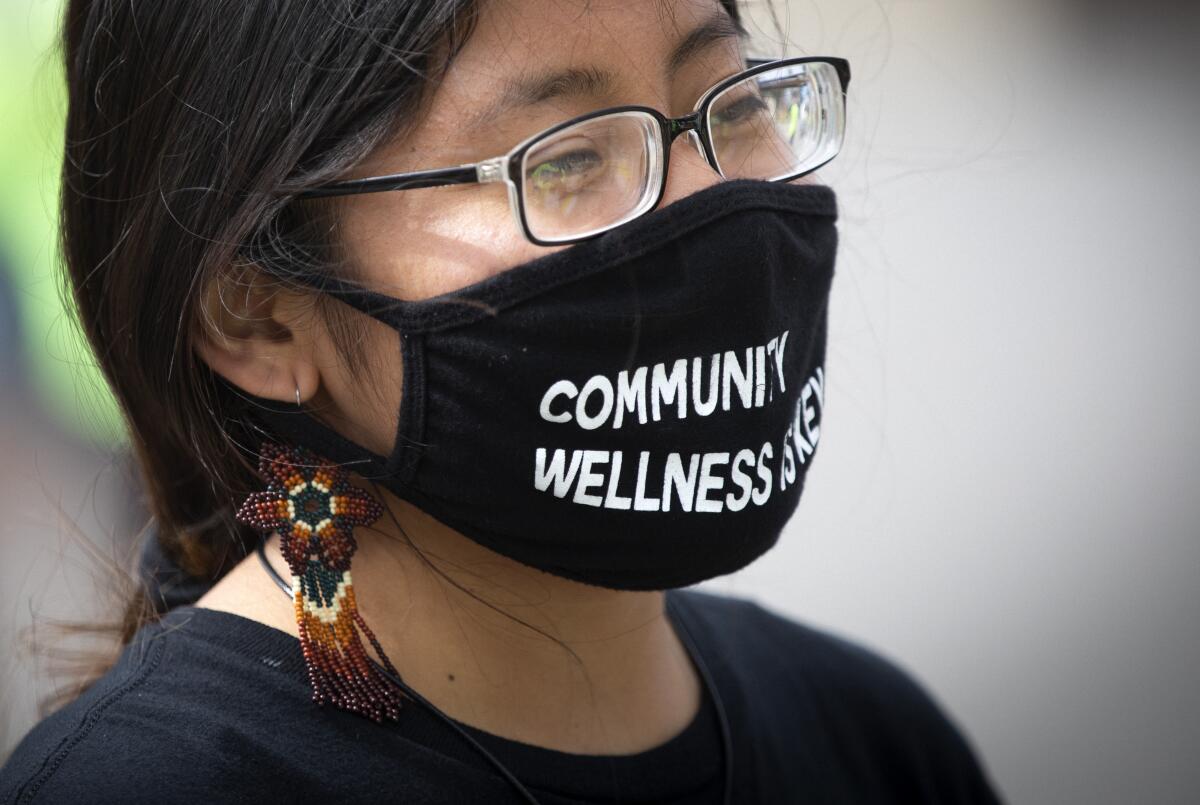
The missed opportunity left Basurto feeling like an outcast and resentful about her place within her family, she said. Her ambivalence was especially strong toward her U.S.-born siblings — a 10-year-old brother and 12-year-old sister — whom she said she loved dearly but couldn’t bear to be close to any longer.
She stopped talking to them.
“I just felt a lot of anger during that time,” Basurto said.
They were too young to understand how the sheer luck of being born in the U.S. gave them more leverage and opportunities than Basurto.
Other immigrant youth, like Rotzely, directed their anger toward their parents.
Rotzely, who gave only her first name because she is in the country without legal status, was three months shy of turning 15 when she got the last document to complete her DACA application in 2017.
“I got it,” Rotzely called and told her mother. “I finally got the letter that we’ve been waiting for.”
Her mother hesitated. Then she told her: “It’s too late.”
Her father’s side of the family had tried to persuade her mother to leave Mexico for the U.S. before she gave birth to Rotzely. But she was nine months pregnant and feared complications along the journey.
The lost opportunity weighed heavily on Rotzely, who is now 17. “She decided to wait until after I was born. I resented her.”
Rotzely was 3 months old when she and her mother made the trek north.
The teen didn’t talk with her mother and grew distant from her family. She still did her chores, kept up her grades and ate dinner with them almost every day, but would find any chance to retreat into her room and into herself.
Her mother enrolled her in a youth program at the Coalition for Humane Immigrant Rights of Los Angeles, where Rotzely found others who had also missed qualifying for DACA. Eventually, her anger faded.
Rotzely, who earns stellar grades, said she’s hunted for a part-time, after-school job since last year to help her save for college. But her lack of legal status has made it tough.
“I see how all my friends easily just go to a restaurant or like a known place like Starbucks or McDonald’s and work there, and I have to find all these special jobs that will just pay me cash,” she said. “It’s just a constant reminder that I wasn’t born here and that this country won’t see me the same as other people.”
Just outside Los Angeles, sisters Lisette and Kathy are a California success story: Lisette, 21, attends UCLA, and Kathy, 18, UC Santa Barbara.
Though they’re close in age, Lisette said she grew up taking care of Kathy. Their parents — who brought them illegally to the U.S. from Central America when they were 6 and 3 years old, respectively — had to work odd jobs nonstop to make ends meet. Lisette asked to keep their last name and certain identifying details private to protect her family from potential retaliation.
The sisters are close, quick to laugh and echo each other. But there’s a big divide: Lisette is a DACA recipient; Kathy was just shy of being able to apply. Their little brother, roughly a decade behind, is a U.S. citizen.
“I never got upset my parents were always at work,” Lisette said. “Eventually I started to understand that my responsibility was to take care of my siblings.”
When an uncle found out about DACA, Lisette let herself think for the first time about college and working to support her family. She applied. “It meant the world to have it,” she said.
But Kathy struggled with feelings of guilt and frustration when she went days at a time without seeing her older sister because Lisette worked such long hours, on top of school. “There was just the glaring fact I couldn’t ignore,” Kathy said: Lisette had DACA; she didn’t.
“It would’ve been easier if I could’ve shared the burden with her, but I just couldn’t,” Kathy said.
Jaclyn Kelley-Widmer, associate clinical professor of law at Cornell law school, said she has represented a number of clients with DACA whose younger siblings “just barely missed the cutoff” when the program was put on hold, and who are again left insecure.
“Those who do have DACA feel the arbitrariness of a system that blessed them with the ability to work lawfully and not be afraid in their day-to-day lives, and yet their siblings or their parents are in this limbo,” she said. “It creates a lot of anxiety for the person who has to be the one DACA recipient holding that load for the family.”
Luckily, Lisette and Kathy’s little brother, age 10, doesn’t seem too aware of the tension — he cares only about video games, they joked.
“I am just extremely glad he won’t have to go through what we have to go through,” Lisette said.
Back in Oxnard, Basurto said that she eventually let go of the resentment toward her U.S.-citizen siblings.
She told herself, “I have to pick myself up and pick up my own community because nobody else is going to do it.”
She started to volunteer as a Mixtec interpreter. She provided translation services and helped create food drives for Mixtec farmworkers affected by the 2017 Thomas fire in Ventura County.
It became a full-time job; she didn’t need DACA to make a living.
Although federal law prohibits employers from hiring someone residing in the country illegally, there is no law prohibiting such a person from starting a business or becoming an independent contractor like Basurto.
Her older siblings who qualified for the program moved on with their lives. Her brother travels the state making artwork for buildings, and her sister has an office job and cares for her children. Unlike Basurto, they never got involved in advocating for their community.
“My older siblings live normal lives. They go to work and back home to their families,” she said. “I think outside myself. I speak for folks who don’t have confidence or the safety to advocate for themselves.”
Sometimes Basurto ponders what her life would have been like with DACA. She thinks of the DACA recipients pacified by their new entry into something resembling an American life. In a way, she believes, DACA stunted the same youth-led nationwide activism that won DACA protections in the first place.
“I know folks who ended up getting DACA and forgot that there are folks who fought for it and those who are still undocumented,” Basurto said. “If I had gotten DACA, I would have most likely become one of those folks.”
The end of DACA could be seen as a blessing, Basurto argued. It reawakened a movement.
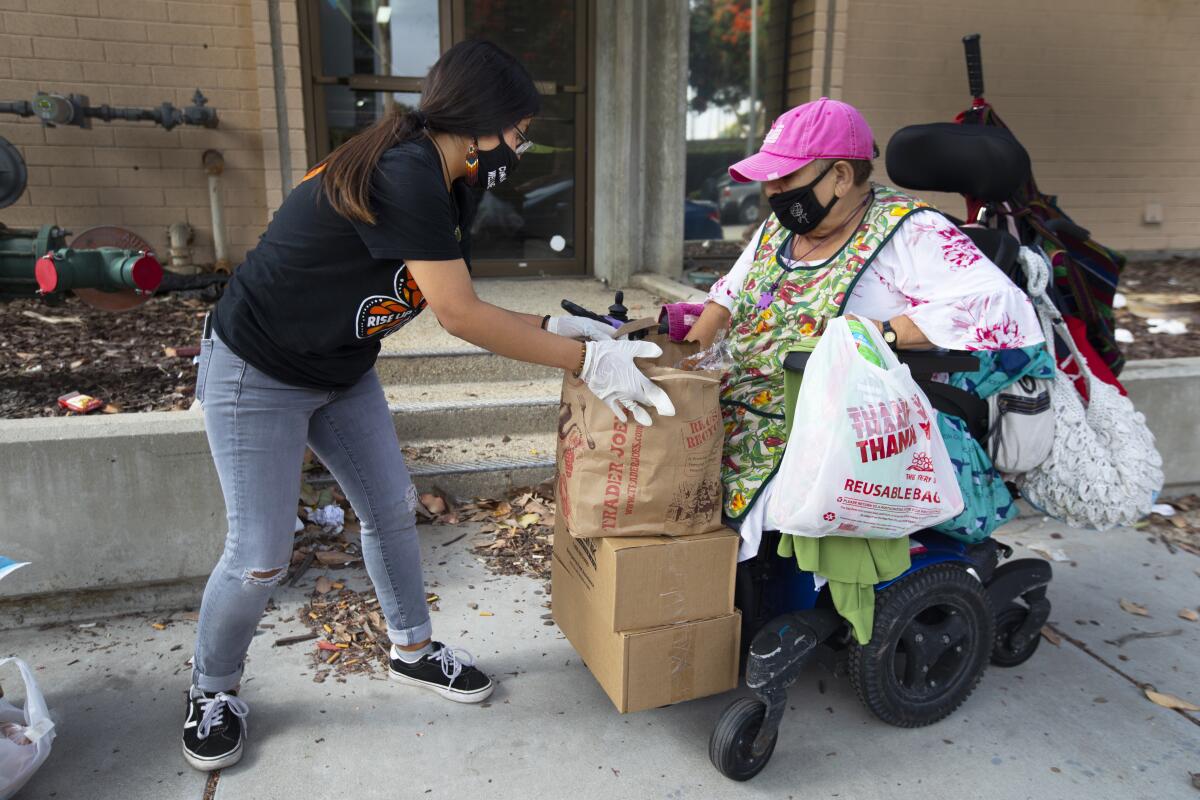
More to Read
Start your day right
Sign up for Essential California for news, features and recommendations from the L.A. Times and beyond in your inbox six days a week.
You may occasionally receive promotional content from the Los Angeles Times.
